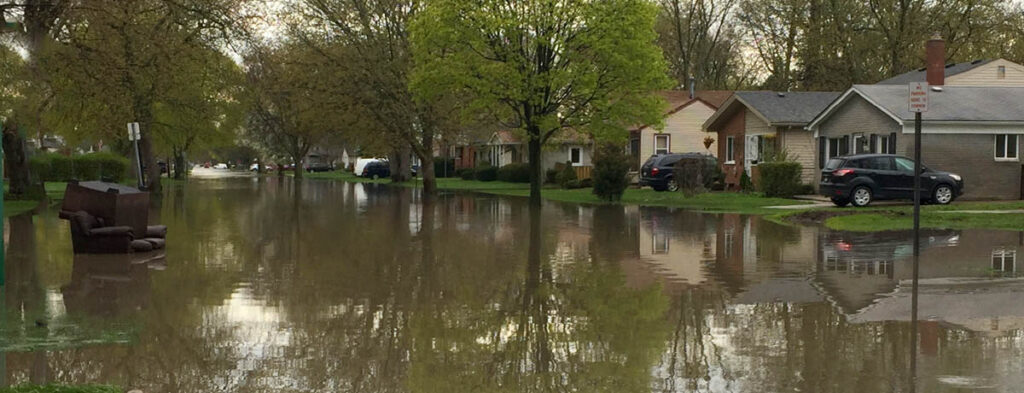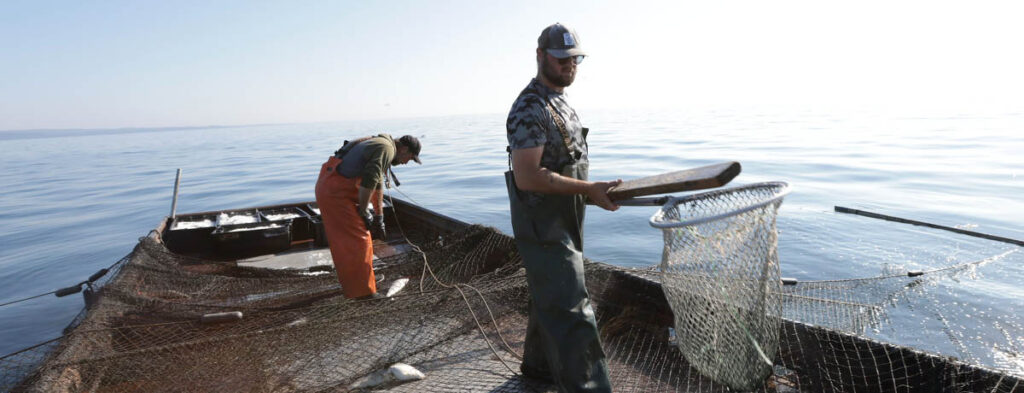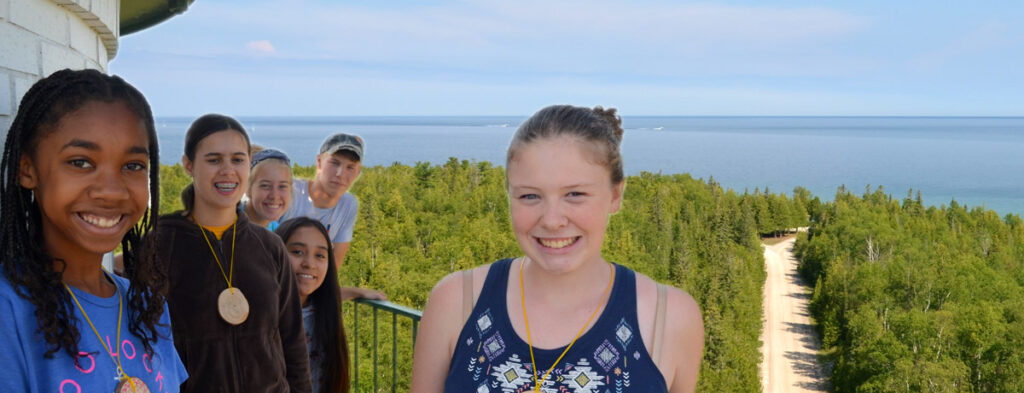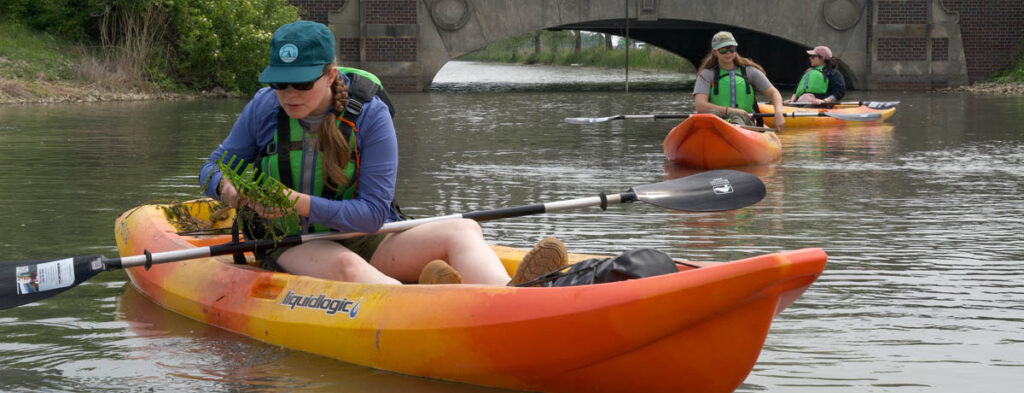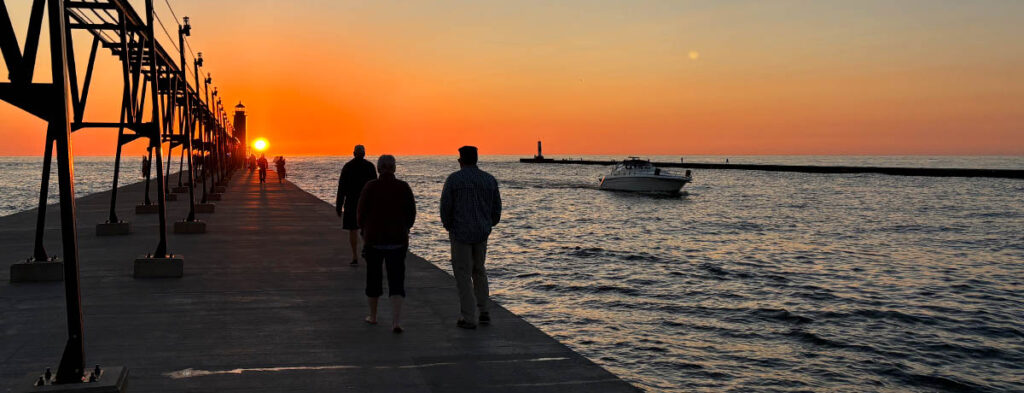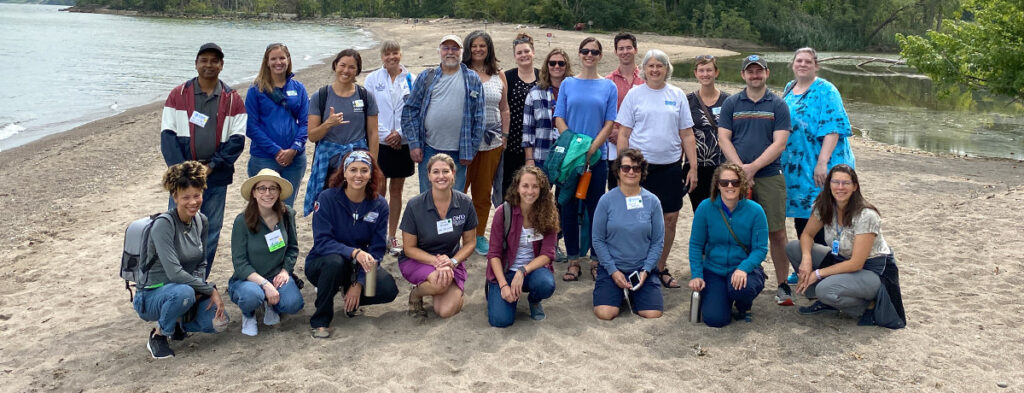At Michigan Sea Grant, we’re committed to research, outreach, and education to foster healthy Great Lakes coastal ecosystems, communities, and economies throughout Michigan.
Our work typically fall within four focus areas:
- Resilient communities and economies
- Sustainable fisheries and aquaculture
- Environmental literacy and workforce development
- Healthy coastal ecosystems
Resilient Communities and Economies
Changing Great Lakes water levels, more frequent and intense storms, harmful algal blooms, and other natural and human hazards are putting more people and property at risk every year.
We sustain resilient communities and vibrant local economies by:
- Helping municipalities, schools, and marinas manage stormwater through green infrastructure.
- Distributing $500,000 to marina owners and operators to support 26 projects that built or improved pump-out facilities for boaters.
- Curating a hub of policy and funding resources for coastal managers seeking to make their communities more resilient and sustainable.
- Sharing the latest research and policy developments related to hazardous material transport in the Great Lakes region.
- Guiding coastal communities toward developing meaningful projects that make their shoreline assets more environmentally, socially, and economically sustainable.
Sustainable Fisheries and Aquaculture
Fisheries are a vital part of the Great Lakes economy, with economic impacts valued in excess of $5 billion annually. Great Lakes and Michigan fisheries include a wide variety of industries and audiences, including: commercial fishing and charter industry, recreational and subsistence fisheries, tribal fisheries, aquaculture, and the bait industry.
We support sustainable Great Lakes and inland fisheries and aquaculture by:
- Funding crucial research about native and invasive fish species shaping Great Lakes habitats.
- Hosting workshops that use sound science to build bridges among fishery user groups.
- Helping boaters safely navigate near nets used for commercial, tribal, and state agency fishing in Michigan waters.
- Connecting consumers with local sources of fish for food, bait, stocking, fee fishing, and more.
- Setting commercial fishers, processors, and fish farm operators up for success through training programs that sustain dozens of jobs each year.
- Empowering Great Lakes anglers to join participatory science programs that boost scientific understanding of their favorite fish populations.
Education and Workforce Development
A workforce literate in science, technology, engineering, and mathematics is crucial to maintaining Michigan’s – and America’s – competitiveness and resilience in a rapidly changing global economy.
We empower educators and help shape generations of Great Lakes scientists and stewards by:
- Providing high-quality, free classroom lessons and resources through the Center for Great Lakes Literacy.
- Bringing teachers and scientists side-by-side for research expeditions on a federal science ship.
- Exploring the science and history of Lake St. Clair through public Summer Discovery Cruises.
- Blending learning with outdoor fun for kids at 4-H Great Lakes Natural Resources Camp.
- Funding life-changing summer internships for undergraduate students interested in Great Lakes stewardship and research.
Healthy Coastal Ecosystems
Rapid coastal development and other human activities impact the Great Lakes, often leading to poor water quality, dwindling fisheries, shrinking wetlands, booming invasive species, and many other challenges.
We foster research and hands-on projects that are restoring healthy coastal ecosystems by:
- Shaping a former sand mine into a wetland oasis at a popular West Michigan park.
- Helping a natural resource manager save millions of state restoration dollars by spotting an invasive plant before it spread out of control.
- Meeting major restoration goals for damaged habitats in the Detroit River.
- Helping Michiganders stay safe around harmful algal blooms.
A Smart Investment
Michigan Sea Grant’s work is a smart investment in Michigan. We turned $19 million of federal and state funding into nearly $86 million in direct economic benefits for Michigan in 2018-23. For every $1 in core funding we receive, we generate $4 in value for Michigan.
The Power of Partnerships
We’re part of a wide network of nonprofits, schools, government agencies, and other partners dedicated to strengthening and protecting Great Lakes ecosystems and communities.
In 2018-23, we worked with at least:
- 86 government entities
- 16 industry and business organizations
- 11 Tribal groups
- 34 academic and research institutions
- 102 nonprofits and NGOs
- 10 Sea Grant programs
Working together, we can achieve far more than any single organization could do alone.

